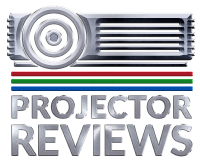- Epson Home Cinema 5030 UB Home Theater Projector Review
- Epson Home Cinema 5030UB Advanced Calibration Information
- Epson Home Cinema 5030UB Calibration & Settings
- Epson Home Cinema 5030UB Warranty
- Epson Home Cinema 5030UB Summary 1
- Epson Home Cinema 5030UB Summary 2
- Epson Home Cinema 5030UB Pros & Cons
- Epson Home Cinema 5030UB Projector Review - Special Features
- Epson Home Cinema 5030UB Projector Review - Hardware 1
- Epson Home Cinema 5030UB Projector Review - Hardware 2
- Epson Home Cinema 5030U Projector Review - Picture Quality
- Epson Home Cinema 5030UB Projector Review - Picture Quality 2
- Epson Home Cinema 5030UB Projector Review - Performance 1
- Epson Home Cinema 5030UB Projector Review - Performance 2
- Epson Home Cinema 5030UB Projector Review - Performance 3
- Epson Home Cinema 5030UB Projector Review - Screens
- Epson Home Cinema 5030UB Projector Review - Competitors 1
- Epson Home Cinema 5030UB Projector Review - Competitors 2
- Epson Home Cinema 5030 UB Home Theater Projector Review Specifications
- Home
- All Reviews
- By Category
- By Manufacturer
- Best Projectors
- Best Projectors By Category
- Best Projectors On Amazon
- Best 4K Projectors
- Best Ultra Short Throw Projectors
- Best Laser TVs
- Best Gaming Projectors
- Best Home Theater Projectors
- Best Projectors Under $1,000
- Best Projectors Under $500
- Best Portable Projectors
- Best Outdoor Projectors
- Best Bright Budget-Friendly Outdoor Projectors
- Best Battery Powered Outdoor Projectors
- Best Outdoor Projection Screens
- Industry News
- Reports
- Projector Manufacturers
- Manufacturer Terminology
- Manufacturers
- Recent Articles
- Custom Integration
- Projection Terms
- Projector Manufacturers Categories
- Videos
- Blog
Close
Menu
- All Reviews
- By Category
- By Manufacturer
- Best Projectors By Category
- Best Projectors On Amazon
- Best 4K Projectors
- Best Ultra Short Throw Projectors
- Best Laser TVs
- Best Gaming Projectors
- Best Home Theater Projectors
- Best Projectors Under $1,000
- Best Projectors Under $500
- Best Portable Projectors
- Best Outdoor Projectors
- Best Bright Budget-Friendly Outdoor Projectors
- Best Battery Powered Outdoor Projectors
- Best Outdoor Projection Screens
- Latest News
- Reports & Guides
- Manufacturers
- Articles
- Custom Integration
- Projection Terms
- Blog
close

